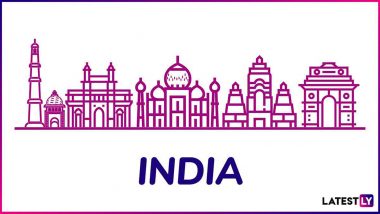New Delhi, Nov 17 (PTI) The Centre on Thursday vehemently opposed in the Supreme Court a batch of pleas seeking a collegium-like system for selection of Chief Election Commissioner (CEC) and Election Commissioners, contending any such attempt will amount to amending the Constitution.
Attorney General R Venkataramani told a five-judge Constitution bench headed by Justice KM Joseph that the march of law from the 1997 case of Vineet Narain versus Union of India (which dealt with appointment of CBI director by a committee) to fill the vacuum in the Constitution cannot be allowed in the present case.
"Any attempt to do this will amount to constitutional amendment," he said, adding the Constituent Assembly had all the models of Constitution before it but it chose this model, and it certainly had in mind the independence of the Election Commission of India.
"So, it cannot be said that there was no application of mind", he said.
The bench, also comprising Justices Ajay Rastogi, Aniruddha Bose, Hrisikesh Roy and CT Ravikumar, asked the Attorney General to read Article 316 (on the appointment of UPSC members) and Article 148 (dealing with appointment of Comptroller and Auditor General of India) of the Constitution.
It asked why is that for 72 years Parliament has not been able to come up with any law as envisaged in Article 324 (2) (dealing with the appointment of CEC and ECs) like it has done for appointment of Central Vigilance Commissioner or Union Public Service Commission members.
Article 324(2) reads: "The Election Commission shall consist of the Chief Election Commissioner and such numbers of other Election Commissioners, if any, as the President may from time to time fix and appointment of the CEC and other ECs shall, subject to provisions of any law made in that behalf by Parliament, be made by the President."
The bench told the Attorney General, when the Constitution says it is "subject to any provision of any law" has not Parliament defeated the vision of the founding fathers of the Constitution.
Venkataramani said if there is no law, then the President is the ultimate authority for appointment, who is bound by the aid and advice of the council of ministers.
The bench said, "We are being asked (by the petitioners) to do a repeat of Vishaka (1997 case in which apex court laid down guidelines regarding sexual harassment at workplace). If we find any unfairness, our powers have to be invoked but the problem is no court can issue mandamus to the Parliament".
Venkataramani responded, saying, "If court decides to do like the Vishaka case, then it is being asked to do indirectly what cannot be done directly and the conclusion will be the same."
The bench asked the Attorney General to continue his submission on Tuesday, when the court resumes its hearing on the batch of pleas.
During the hearing, Justice Roy wondered why till now India does not have any woman as Chief Election Commissioner or for that matter CBI director.
At the outset, advocate Prashant Bhushan, appearing for petitioner Anoop Baranwal, said an independent body like the apex court collegium, which recommends the names for appointment of judges, should select the Chief Election Commissioner (CEC) and ECs to ensure institutional integrity of the poll panel.
He said the law commission has recommended that a panel of Prime Minister, Chief Justice of India and Leader of Opposition (LoP) should appoint the CEC as is done for appointing the CBI director or Central Vigilance Commissioner (CVC) but in his view the PM and LOP should not be part of that panel as they are the stakeholders.
"My respectful submission is that the Prime Minister and the leader of Opposition should be out of it", Bhushan said, adding the independence of the election commission is of utmost importance to uphold the principle of free and fair elections.
Justice Rastogi said there is already criticism about the collegium system and people are asking questions. "Do you think this system will be foolproof?
Bhushan responded, "The court may put some additional safeguards to ensure that there is no arbitrariness. I also believe and it has been my stand throughout that the present collegium system for appointment of judges needs some improvement.
"What I am seeking is that there should be some mechanism on the line of the apex court judgement in the National Judicial Appointment Commission (NJAC) (matter)".
He said though 72 years have gone by since the Constitution was adopted, no law has been passed to regulate the appointment of the CEC and ECs.
"The present system of government appointing CEC and ECs does not ensure independence of the election commission," he said.
Senior advocate Gopal Sankaranarayanan, appearing for advocate Ashwini Upadhyay who has sought appointment of CECs and ECs through a collegium system, equal protection to election commissioners as granted to CEC and rule-making powers for the poll panel among other prayers, said there is vacuum and it needs to be filled.
On October 23, 2018, the top court had referred to a five-judge Constitution bench the PIL seeking collegium-like system for selection of the CEC and the ECs for authoritative adjudication.
(This is an unedited and auto-generated story from Syndicated News feed, LatestLY Staff may not have modified or edited the content body)













 Quickly
Quickly
















